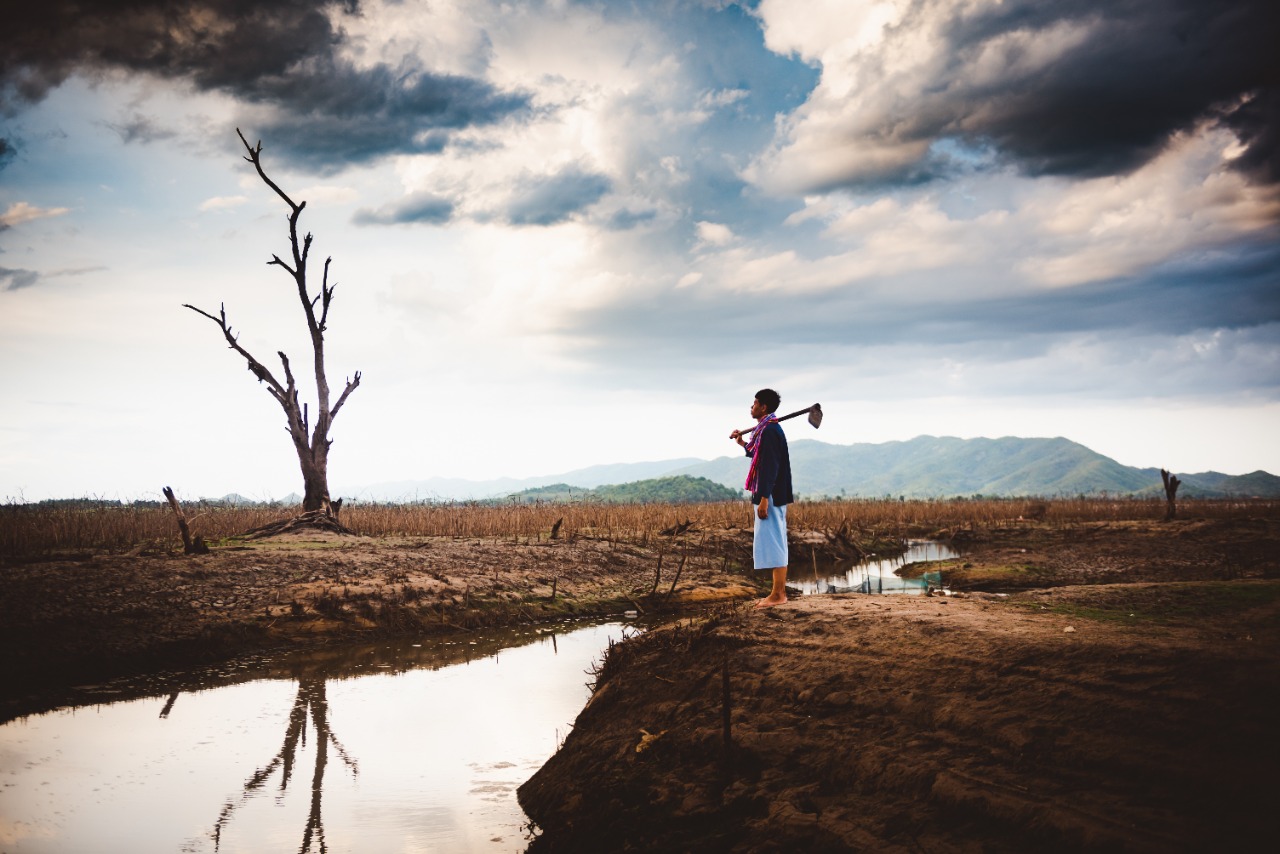DOI: 10.24850/b-imta-perspectivas-2021-46 Descarga PDF
during the inauguration of the Binational Conference on the intersection of Climate Change and Water, Agriculture and Economics, organised by the Mexican Embassy in the UK and IMTA.
As far back as the 1980s, climate models indicated that changes in patterns and amounts of precipitation would be an important consequence of climate change. Growing demands for water, even without the added burden of climate change, are placing enormous stress on water resources all over the world. Today, the evidence that we are altering the climate is undeniable. Furthermore, the impacts of global climate change on water are enormous. Water is the key driver of impacts, we now see how rapid loss of glaciers has an influence in the timing and volume of river flows. Also, higher temperatures increase water demand and intensify heat waves and forest fires. Therefore, it is now recognised that the climate crisis is indeed, a water crisis.
As humanity we have forced an evolution of the Earth from a variable but stable climate, to a constantly evolving, changing, and worsening set of conditions. Not all climate impacts are created equal, or distributed equally, resulting adverse impacts are not felt equitable among people or nations. From extreme weather to rising sea levels, the effects of climate change often have disproportionate effects on marginalised or underserved communities. This is why it is time for a fundamental change in the way we think about water.
In the 20th century, the focus of water management was on enhancing supply by building massive dams to capture water in wet periods to use in dry ones, and long aqueducts to move water from areas of abundance to areas of scarcity. That approach brought benefits to some parts of the world, but also led to unanticipated costs, both social and environmental.
Today, the Covid19 pandemic has made evident not only that human health is linked to that of the environment but also to the global economy. Indeed, in some countries it is through their economic, political and cultural ties with other nations that the impacts of global climate change are most likely to be felt. The indirect impacts through for example the international trade or the migration of people are also very important.
If the water crisis is the key driver of the climate crisis, we need scientific institutions, companies and universities from all over the world to work together to tackle them. Conferences such as the one we have today enables us to do that, bringing together a group of specialists with expertise across water, agriculture and economics. Therefore, the dialogue allows the identification of the right connections to make rapid progress.
The goal of this Binational Conference is to harness the power of science, engineering and knowledge, to build a sustainable society and an inclusive economy that works for everyone. Collaboration and innovation are the necessary ingredients for the future. We are better together. That is the way to transform the equation from one of water scarcity to one that provides hope for everyone. In Mexico, we are convinced that water can be the driver of an equitable economic development, but for this, we need to evolve and prioritise the protection of the most vulnerable. If the process of this urgent transformation is not just, the outcome will never be. The evolution itself must be just and equitable.
That means using less to produce more, treating and reusing more wastewater, meeting the human right to water for all, and developing nature-based solutions. Our decision-making process must be adjusted to reflect a diverse set of realities and climate, all over the world and within countries.
Climate change is one of the most contentious environmental issues of our time, I wish you all fruitful discussions along these two days, the era of overexploitation of aquifers and catchments, and destruction of ecosystems is behind us. We need the best science to find the best solutions, let us catalyse the transformation of water institutions, technologies, and policies to build together a resilient home for our daughters and sons.
The whole world is connected, we therefore need to think collectively but with a lens of justice, solidarity and respect, as the great Mexican President Benito Juárez used to say: “Among individuals, as among nations, respect for the rights of others is peace.” More than ever it is necessary to explicitly include and speak of the rights of an equitable economic development and wellbeing for all. We do this because is the right thing to do.
Many thanks.
Links to watch the whole conference:
Bi-national Conference on the intersection of Climate Change and Water, Agriculture and Economics
Expert roundtable 2: Climate change and weather extremes
https://www.youtube.com/watch?v=GUwqsTo2SKg
Postgraduate presentations on free topics on climate change and water resources
https://www.youtube.com/watch?v=JHQ38Tfh4pA&t=127s
Water economics,climate change, and climate finance
https://www.youtube.com/watch?v=crJPwz8DqyY
The nexus waterenergy-food
https://www.youtube.com/watch?v=myhIP_-v0I0
Read note: The climate crisis is a water crisis: Its attention requires social justice.
